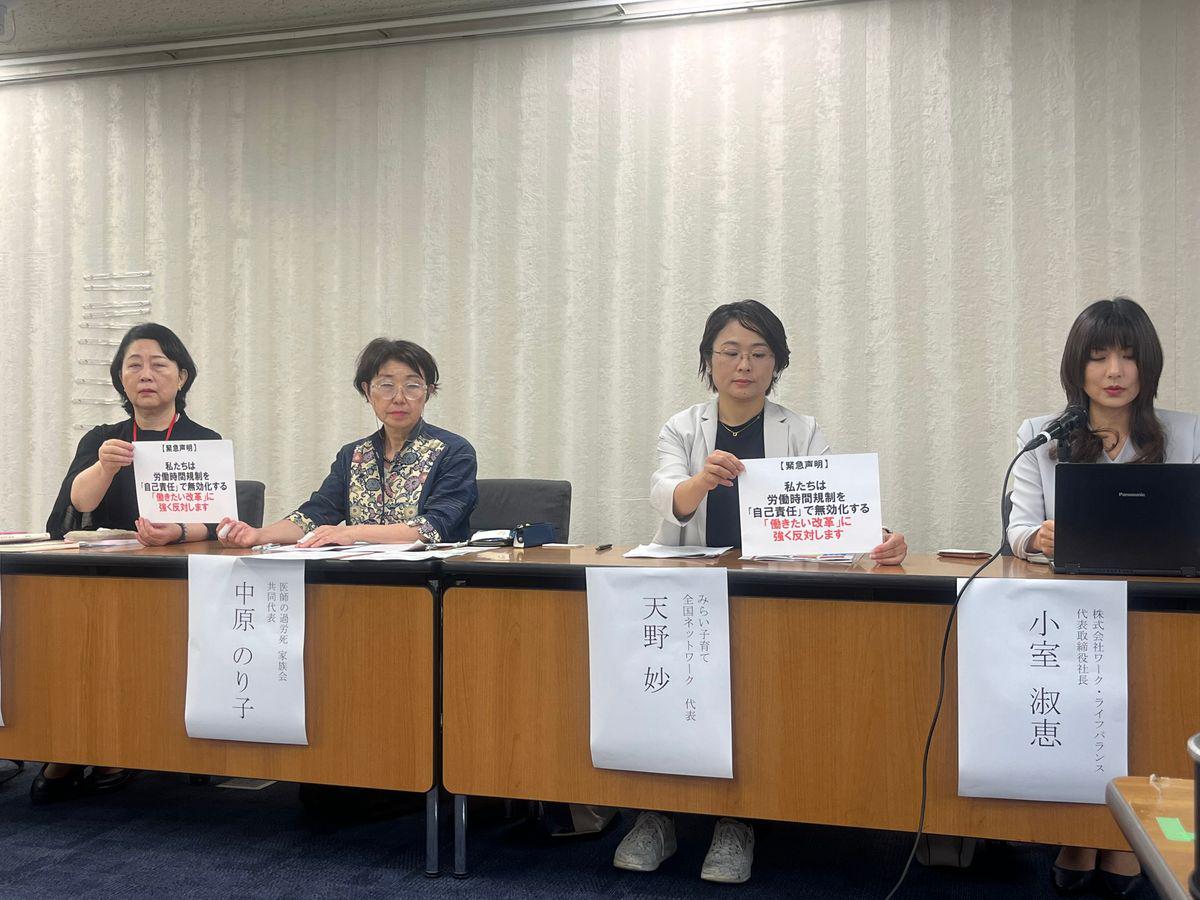
Two Different Ideas About Work Reform: “Work-Style Reform” vs. “Want-to-Work Reform”
Japan’s political parties are split on how to deal with labor issues.
- The ruling parties (Liberal Democratic Party and Komeito) support a “want-to-work reform”, which would loosen limits on working hours to allow people to work more if they choose. The Sanseito party agrees, calling for changes to current work rules that they say prevent willing workers from working more. These ideas come from a desire to support flexible work styles and deal with labor shortages.
- On the other hand, opposition parties like the Constitutional Democratic Party, Democratic Party for the People, and the Communist Party still support “work-style reform”, which focuses on reducing long hours and improving work-life balance. Their proposals include requiring at least 11 hours of rest between shifts, offering more short-hour employment options, and continuing efforts to cut back overtime.
Concerns Over a Backslide in Work Reforms
Japan’s current work reform law, which set limits on overtime, has been in place since 2019. But now, experts are warning that some parties’ “want-to-work” approach could reverse progress.
Yoshie Komuro, president of a work-life consulting firm, said at a July 16 press conference that this “reform” mostly reflects employers wanting to make people work more, especially in industries facing labor shortages.
Kyoto University professor Yu Shibata added that instead of increasing overtime, companies should focus on digital tools and better efficiency to raise productivity.
A government survey shows that about 80% of young people (ages 18–25) value a balance between career and personal life when choosing jobs, showing that companies need to create better working conditions to attract talent.
Voices from Families of Overworked Victims
Junko Takashima, whose son (a doctor) died from overwork, also spoke at the press conference. She warned that promoting “want-to-work” reforms will create workplaces where only people who agree to work more are treated well, and those who don’t will be seen as lazy. This could lead to peer pressure, bullying, and even more deaths from overwork.
She called any rollback of reforms an insult to those who have died due to overwork.
A Better Solution: Include More Types of Workers
To solve labor shortages without relying on long hours, Komuro said Japan should focus on getting more people into the workforce, such as older adults, or those raising kids or caring for family.
Right now, jobs expect too much from each person, with long hours, which pushes many out of the workforce.
To fix this, she suggested raising the overtime pay rate to 1.5x, so companies stop depending on overtime and create better, fairer workplaces. This would help bring in a wider range of workers and reduce burnout.
Conclusion
Japan’s working world is changing. To keep up, the country needs smarter, fairer ways to work—not just longer hours. Reform should benefit both workers and companies, not hurt the most vulnerable.
by MagazineKey4532
